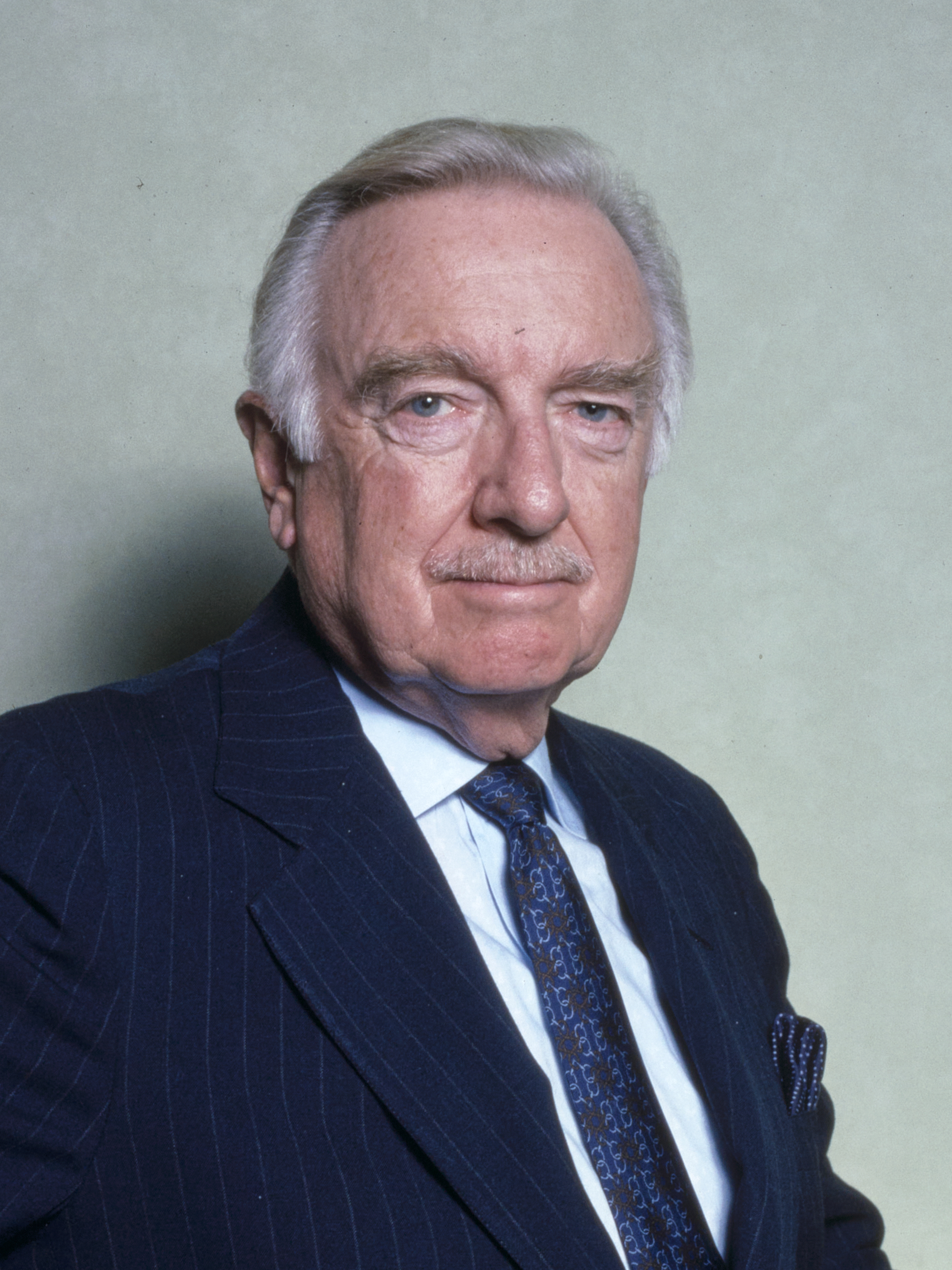
Walter Cronkite
Walter Leland Cronkite Jr. (November 4, 1916 – July 17, 2009) was an American broadcast journalist who served as anchorman for the CBS Evening News[1] for 19 years, from 1962 to 1981. During the 1960s and 1970s, he was often cited as "the most trusted man in America" after being so named in an opinion poll.[2][3][4] Cronkite received numerous honors including two Peabody Awards, a George Polk Award, an Emmy Award and in 1981 was awarded the Presidential Medal of Freedom by President Jimmy Carter.
Walter Cronkite
July 17, 2009 (aged 92)
- Walter Wilcox
- Old Ironpants
- Uncle Walter
- King of the Anchormen
- Television and radio broadcaster
- news anchor
1935–2009
3, including Kathy
Cronkite reported many events from 1937 to 1981, including bombings in World War II; the Nuremberg trials; combat in the Vietnam War;[5] the Dawson's Field hijackings; Watergate; the Iran Hostage Crisis; and the assassinations of President John F. Kennedy, civil rights pioneer Martin Luther King Jr., and Beatles musician John Lennon. He was also known for his extensive coverage of the U.S. space program, from Project Mercury to the Moon landings to the Space Shuttle. He was the only non-NASA recipient of an Ambassador of Exploration award.[6] Cronkite is known for his departing catchphrase, "And that's the way it is", followed by the date of the broadcast.[7]
Cronkite died at his home in 2009, at the age of 92, from cerebrovascular disease.
Early life and education
Cronkite was born on November 4, 1916, in Saint Joseph, Missouri,[8] the son of Helen Lena (née Fritsche) and Dr. Walter Leland Cronkite, a dentist.[9][10][11]
Cronkite lived in Kansas City, Missouri, until he was 10, when his family moved to Houston, Texas.[10] He attended elementary school at Woodrow Wilson Elementary School (now Baker Montessori School),[12] junior high school at Lanier Junior High School (now Lanier Middle School) in Houston, and high school at San Jacinto High School, where he edited the high school newspaper.[8] He was a member of the Boy Scouts. He attended college at the University of Texas at Austin (UT), entering in the fall term of 1933,[13] where he worked on the Daily Texan and became a member of the Nu chapter of the Chi Phi Fraternity.[14] He also was a member of the Houston chapter of DeMolay, a Masonic fraternal organization for boys.[15]
While attending UT, Cronkite had his first taste of performance, appearing in a play with fellow student Eli Wallach. He dropped out in 1935, not returning for the fall term, to concentrate on journalism.[13]
Legacy
Public credibility and trustworthiness
For many years, until a decade after he left his post as anchor,[105] Cronkite was considered one of the most trusted figures in the United States. For most of his 19 years as anchor, he was the "predominant news voice in America."[105] Affectionately known as "Uncle Walter", he covered many of the important news events of the era so effectively that his image and voice are closely associated with the Cuban Missile Crisis, the assassination of President John F. Kennedy, the Vietnam War, the Apollo 11 Moon landing, and the Watergate scandal.[8][100] USA Today wrote that "few TV figures have ever had as much power as Cronkite did at his height."[105] Enjoying the cult of personality surrounding Cronkite in those years, CBS allowed some good-natured fun-poking at its star anchorman in some episodes of the network's popular situation comedy All in the Family, during which the lead character Archie Bunker would sometimes complain about the newsman, calling him "Pinko Cronkite."
Cronkite trained himself to speak at a rate of 124 words per minute in his newscasts so that viewers could clearly understand him.[106] In contrast, Americans average about 165 words per minute, and fast, difficult-to-understand talkers speak close to 200 words per minute.[107]